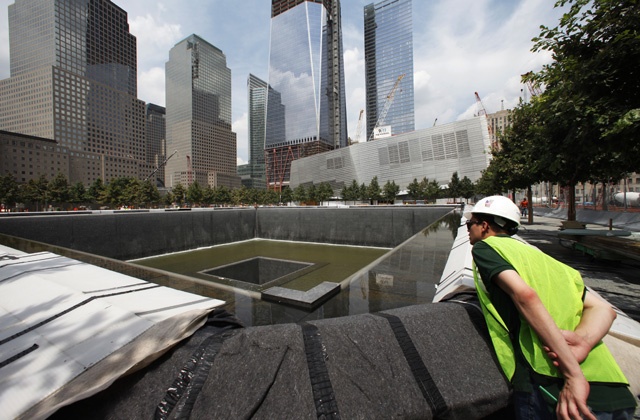Surviving 9/11
This tenth anniversary of the attacks on 9/11, for all its potential to reawaken a painful past, also moves personal loss into collective historical memory. That can be a painful process but also offers a moment for reflection and the creation of new meanings.

This tenth anniversary of the attacks on 9/11, for all its potential to reawaken a painful past, is also significant in that it moves personal loss into collective historical memory. Something experienced viscerally becomes part of a much broader context. The trauma itself enters this larger sense of time. That can be a painful process but also offers a moment for reflection and the creation of new meanings.
For many immediate survivors, 9/11 remains an open wound — as it does for the many thousands of New Yorkers who continue to have trouble breathing, or are getting cancers at a higher rate than normal, or are still struggling with psychological repercussions from their experiences. Such suffering must be deeply respected and should be appropriately responded to at all levels.
More distant survivors — the rest of us — have a complementary task in our struggle to make sense of the event. No disaster — whether that of Hiroshima, or Auschwitz, or 9/11 — has an inherent meaning. It only has the significance we give it. But because we as humans are meaning-hungry creatures, we must connect such an event with some form of larger interpretation. Cultural meanings and symbols emerge from the interplay between the direct experience of immediate survivors and the reactions of those responding from a greater distance.
A problem, both cultural and political, is the inevitability of contending views on lessons to be learned from what took place, why the 9/11 attacks occurred, and how even now we should deal with their continuing consequences.
Our plea is for life-enhancing meanings that can interrupt the cycles of violence involving terrorism and responses to it. Such meanings have emerged from other catastrophes. A considerable number of survivors of the atomic bombings of Hiroshima and Nagasaki have traveled around the world to tell their stories to warn about the dangers of nuclear weapons. Auschwitz survivors, immediate and distant, have taken strong and influential stands against mass killing and genocide. Cannot Americans begin to find similar wisdom in connection with 9/11?
We have surely learned of the absurdity of fighting wars that aim militarily at wiping out all terrorism. Such an approach only makes things worse and deepens the problem in the name of solving it. We need to protect ourselves and ward off attacks, as the world can be dangerous and violent. But our most basic approach should be that of searching for alternative directions that dampen rather than exacerbate violence. The Arab Spring, however uncertain its outcome, may offer such an opportunity in its impulse to overthrow tyrants and expand justice. We could open up new dimensions of dialogue with Islamic nations, in which our new understandings of 9/11 could play an important part. Both terrorist movements and American violence would be radically diminished, and we all would experience something closer to what the former Secretary General of the United Nations, Kofi Annan, called “human security.”
To carry out this mission requires that we acknowledge our vulnerability and military limitations. We must extricate ourselves from what can be called our superpower syndrome, with its assumption of American omnipotence and the illusion that we can control history. To accept limitation and seek nonviolent change are expressions of strength, rather than weakness. The tenth anniversary of 9/11 has the potential to serve as a powerful catalyst in this process.

































































































